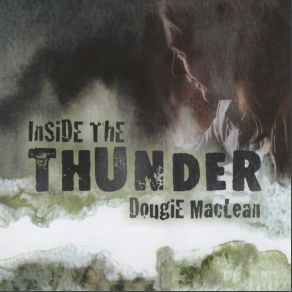Inside The Thunder
Download links and information about Inside The Thunder by Dougie MacLean. This album was released in 2005 and it belongs to World Music, Songwriter/Lyricist, Contemporary Folk, Celtic genres. It contains 10 tracks with total duration of 45:24 minutes.

|
|
|---|---|
| Artist: | Dougie MacLean |
| Release date: | 2005 |
| Genre: | World Music, Songwriter/Lyricist, Contemporary Folk, Celtic |
| Tracks: | 10 |
| Duration: | 45:24 |
| Buy it NOW at: | |
| Buy on iTunes $7.99 | |
| Buy on Amazon $6.99 | |
Tracks
[Edit]| No. | Title | Length |
|---|---|---|
| 1. | Not Look Down | 4:27 |
| 2. | Song For Johnny | 3:59 |
| 3. | Home | 4:38 |
| 4. | Seventh Sea | 5:28 |
| 5. | Strathmore | 5:20 |
| 6. | Eternally You | 5:26 |
| 7. | Open Fields | 4:23 |
| 8. | It's Not For Me | 3:32 |
| 9. | Into The Flames | 4:29 |
| 10. | Beside You | 3:42 |
Details
[Edit]The pervading mood on Inside the Thunder, Dougie MacLean's first album in several years, is sadness. The title comes from "Song for Johnny," a tribute to the late Johnny Cunningham, who was once replaced by MacLean in the band Silly Wizard. "It seems we never learned to play it slow," MacLean sings, "We just danced inside the thunder." But on the album, he seems to have learned finally to play it slow. These are deliberately paced songs with attractive folk-rock arrangements, many of the instruments played by MacLean's son Jamie MacLean, who also produced, engineered, mixed, and even mastered the record. MacLean sings them wistfully and with occasional touches of anger. His imagery has a traditional turn; the language often refers to nature (as often in a mystical as a realistic sense), monarchy, and rural work. In fact, the only really positive song on the album is "Strathmore," a worker's reminiscence about bringing in the harvest on a farm. The rest of the time, things are not nearly so happy, although it often isn't exactly clear what's wrong. Now and then, a particular object of scorn is identified. In "It's Not for Me," MacLean condemns "the media saints with their journalist jibe [whose] broadcasting taints almost the whole of their lives," and in "Into the Flames," he identifies some leader — a king, a knight, a chosen one — who has "a clever word to calm our fear," but is "laughing when we cannot hear." Even these are somewhat generalized villains, however, and elsewhere the source of the songs' sense of despair is even vaguer. Clearly, MacLean is aiming for a heightened, poetic impression, and he sometimes achieves it. At the same time, the music is never less than engaging. But by the end, although a mood has been established clearly, one wishes the reasons for it were equally transparent.